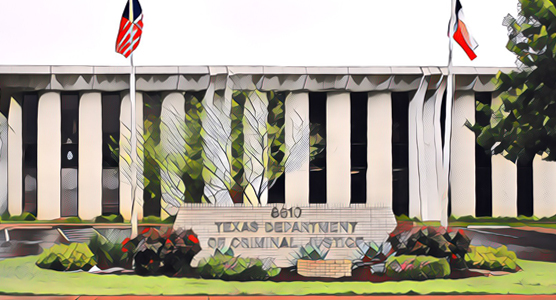Execution of Buddhist inmate in Texas halted again over flaws in revised chaplain policy

Earlier this year, the Texas Department of Criminal Justice (TDCJ) was forced to change its policy regarding the use of chaplains during the execution of inmates when the U.S. Supreme Court stepped in to halt the execution of Patrick Murphy. Murphy, who is Buddhist, was denied the right to have a religious leader of his faith with him in the execution chamber. Instead, he was offered only state-employed Christian and Muslim chaplains to minister to him in his final moments.
Supreme Court Justice Brett Kavanaugh, in an opinion concurring in the majority’s decision, reasoned that such differential treatment – in which Christian inmates may have a religious advisor of their faith in the chamber during execution but inmates of other faiths do not – violates Murphy’s religious freedom rights. Instead of allowing Murphy to have a Buddhist leader in the chamber with him, the state’s response, which I described as “cruel” earlier this year, was to disallow clergy of any faith into the execution chamber.
According to a ruling by a federal judge in Texas last week, which again halted Murphy’s execution, the state’s new policy still fails constitutional scrutiny because it treats inmates of minority faiths differently than those of other faiths. The court cited Murphy’s allegations that state-employed chaplains, who are Christian, have greater access to condemned prisoners in the hours leading up to execution than those of other faiths.
Here is an excerpt from the opinion, in which the judge takes issue with the state’s claim that the state’s chaplains are serving a merely secular role in providing an ear to condemned prisoners in their final hours:
While they clearly operate in a secular capacity by providing comfort and consolation to soon-to-be-executed inmates, the facts developed this far suggest that they may serve as more to inmates of certain faiths…. “Those chaplains have indicated they would pray with Christian inmates during this time but would not engage in any activity with a prisoner who adheres to a different faith if that activity did not accord with the chaplain’s personal religious faith.” Serious questions remain as to whether Texas’ current policy unconstitutionally allows a Christian inmate in-person access to a state-employed religious adviser in the hours immediately before execution, while inmates of other religious denominations may only communicate with their religious advisors by telephone.
…The concerns raised by the amended complaint’s focus on the pre-execution procedure are as compelling as those in the original complaint. If Murphy were Christian, he would have the benefit of faith-specific spiritual support until he entered the execution chamber; as a Buddhist he is denied that benefit.
Whether the First Amendment requires the state to provide all inmates with access to a requested spiritual adviser inside the execution chamber remains an unresolved question, raised by Murphy’s lawsuit. But, as the judge’s ruling last week and the Supreme Court’s ruling earlier this year makes clear, the Constitution does not allow a state to vary access to a requested spiritual adviser at execution on the basis of an inmate’s faith.
For more on this topic, see BJC Executive Director Amanda Tyler’s column earlier this year after the initial injunction halting Murphy’s execution.




